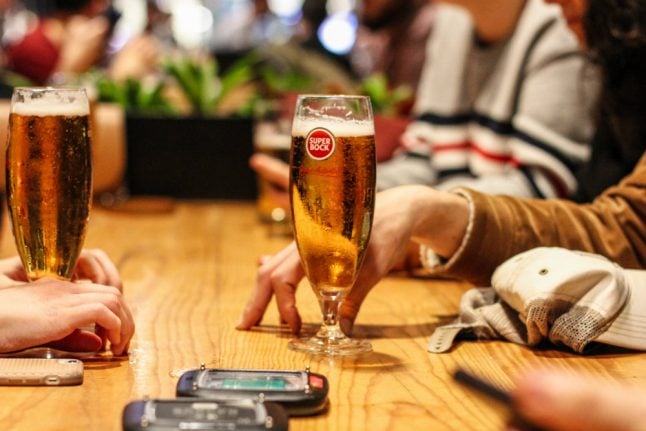The government is taking several steps to slow down the reopening of society, health minister Bent Høie confirmed at a press conference on Friday afternoon.
The measures include a national ban on serving alcohol after midnight. The ban comes into effect on August 8th.
A limit of 200 people for attendance at events has been retained.
“We have said that we will open society gradually, together and in a controlled manner. Recent times have seen an increase in infections in society. In order to maintain control, we must therefore put the brakes on further reopening and implement new measures,” Høie said in a statement reported by Norwegian media including N24.
The week commencing July 27th saw 196 new coronavirus infections in Norway, compared with 94 the previous week. The country's health authorities update latest figures in weekly reports.
The decision was “in line with the recommendations of the Norwegian Directorate of Health and the Norwegian Institute of Public Health”, he added.
“We are doing this so that we can keep kindergartens and schools, nursing homes and workplaces open,” he said.
Further assessment of the situation will be made by the government in early September.
The government is also recommending working from home two to three days a week possible, in an effort to reduce rush hour traffic on public transport.
“We encourage everyone who can to walk or cycle to work and school. Employers must facilitate this so that half as many people are using public transport, and state and municipal employers should lead by example,” Høie said.
A general recommendation to avoid travel abroad – including to countries designated ‘green’ by the foreign ministry due to low recent infection rates – was also confirmed at the Friday afternoon briefing.
Health authorities are planning to open Covid-19 test centres at border crossings, airports and ports, and travellers arriving from ‘red’ countries must wear face masks when they arrive in Norway.
Face masks are also recommended for people on their way to home quarantine if there is a risk they will meet others.
Although further recommendations for face masks are yet to be made, Høie said the Norwegian public could expect an update soon in this regard.
The Norwegian Institute of Public Health is now assessing whether to advice face masks in specified situations.
“We are waiting for a good, medical assessment before we move forward with the question of using face masks in various situations. The Norwegian Directorate of Health and the Norwegian Institute of Public Health will create campaigns on correct use and look at how we will ensure face masks are widely available. More detailed advice will come on August 14th,” Høie said.
“But we are saying today that people must be prepared for forthcoming recommendations on the use of face masks during rush hour on public transport,” he added.
READ ALSO: UPDATED: MAP: Which countries are open for tourism to and from Norway?



 Please whitelist us to continue reading.
Please whitelist us to continue reading.
Member comments